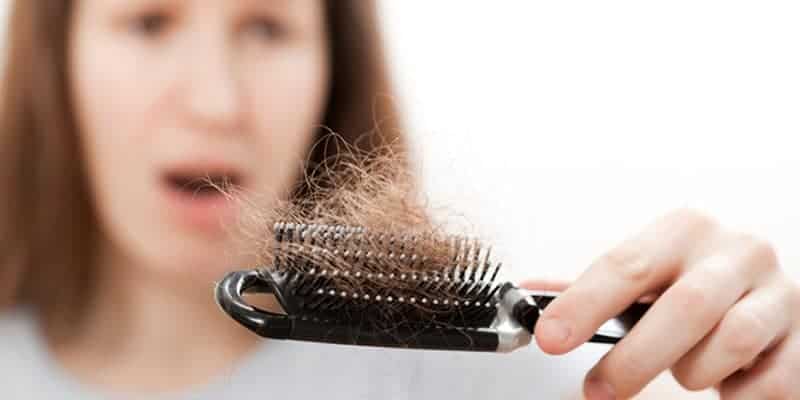

wordpress-seo domain was triggered too early. This is usually an indicator for some code in the plugin or theme running too early. Translations should be loaded at the init action or later. Please see Debugging in WordPress for more information. (This message was added in version 6.7.0.) in /home/sehatnagar.com/public_html/wp-includes/functions.php on line 6114
Diabetes is a chronic condition that affects millions of people around the world. Hair loss, or alopecia, is a common condition that affects both men and women. While diabetes is not typically associated with hair loss, there are some ways in which the disease can contribute to the condition. In this article, we will explore the relationship between diabetes and hair loss to answer the question, “Can diabetes cause hair loss?”
The hair growth cycle consists of three phases: the anagen phase, the catagen phase, and the telogen phase. The anagen phase is the active growth phase, where hair grows rapidly. The catagen phase is the transitional phase where hair stops growing, and the telogen phase is the resting phase where hair falls out. Understanding the hair growth cycle is important to identify the cause of hair loss.
One of the main ways that diabetes can cause hair loss is by affecting the circulation of blood and nutrients to the hair follicles. High blood sugar levels can damage blood vessels, which can reduce blood flow to the hair follicles. This can cause the hair to become weak and brittle, and in some cases, may lead to hair loss.
Diabetes can cause hair loss in several ways. In addition to affecting blood circulation, diabetes can also affect the hormone levels in the body, which can contribute to hair loss. People with Type-1 diabetes are more likely to experience hair loss due to the lack of insulin, which can affect the hair growth cycle. Thyroid conditions, such as hypothyroidism, can cause hair loss. People with diabetes are more likely to develop thyroid conditions, which can lead to hair loss. Stress can cause hair loss, and people with diabetes are more likely to experience stress due to the demands of managing the disease. High cortisol levels associated with stress can contribute to hair loss. Some medications used to treat diabetes, such as metformin, can cause hair loss as a side effect. Restrictive diets used to manage blood sugar levels can also contribute to hair loss if they are not nutritionally balanced.
Type-1 diabetes is a condition where the body does not produce insulin. People with Type-1 diabetes are more likely to experience hair loss due to the lack of insulin, which can affect the hair growth cycle. This type of hair loss is often temporary and can improve with better blood sugar control.

Thyroid Levels and Diabetes That Cause Hair Loss
Thyroid conditions, such as hypothyroidism, can cause hair loss. People with diabetes are more likely to develop thyroid conditions, which can lead to hair loss. Thyroid conditions can also make it more difficult to manage blood sugar levels, which can contribute to hair loss.
Stress can cause hair loss, and people with diabetes are more likely to experience stress due to the demands of managing the disease. High cortisol levels associated with stress can contribute to hair loss. Managing stress through relaxation techniques, exercise, and self-care can help reduce the risk of hair loss.
Some medications used to treat diabetes, such as metformin, can cause hair loss as a side effect. Restrictive diets used to manage blood sugar levels can also contribute to hair loss if they are not nutritionally balanced. Working with a healthcare provider to manage blood sugar levels and address any side effects of medications can help reduce the risk of hair loss.
Is Your Hair Loss a Sign of Diabetes?
While hair loss is not typically a sign of diabetes, it can be a symptom of some of the complications associated with the disease. For example, poor blood sugar control can lead to nerve damage, which can cause hair loss in some cases. Additionally, people with diabetes are more likely to develop infections, which can contribute to hair loss.
Treatment Options for Diabetes That Cause Hair Loss
The treatment options for hair loss associated with diabetes depend on the underlying cause of the condition. In some cases, better blood sugar control can improve hair growth. In other cases, medications to address hormone imbalances or nutritional deficiencies may be necessary. Hair transplant surgery may be an option for people with more severe hair loss.
In conclusion, diabetes can cause hair loss in several ways, including by affecting blood circulation, hormone levels, and stress levels. Managing blood sugar levels and addressing any underlying conditions or side effects of medications can help reduce the risk of hair loss. If you are experiencing hair loss, it is important to talk to your healthcare provider to identify the underlying cause of the condition and develop an appropriate treatment plan.
Read Also:
These Easy Juicing Recipes for Diabetics Will Make You Healthy
Is Beetroot good for diabetes? Beat Diabetes with Beets!
Detox Drinks for Weight Loss: How Effective Are They?
Is Poha Good for Weight Loss. Best Overview
Is curd good for weight loss? Dairy product in weight loss journey